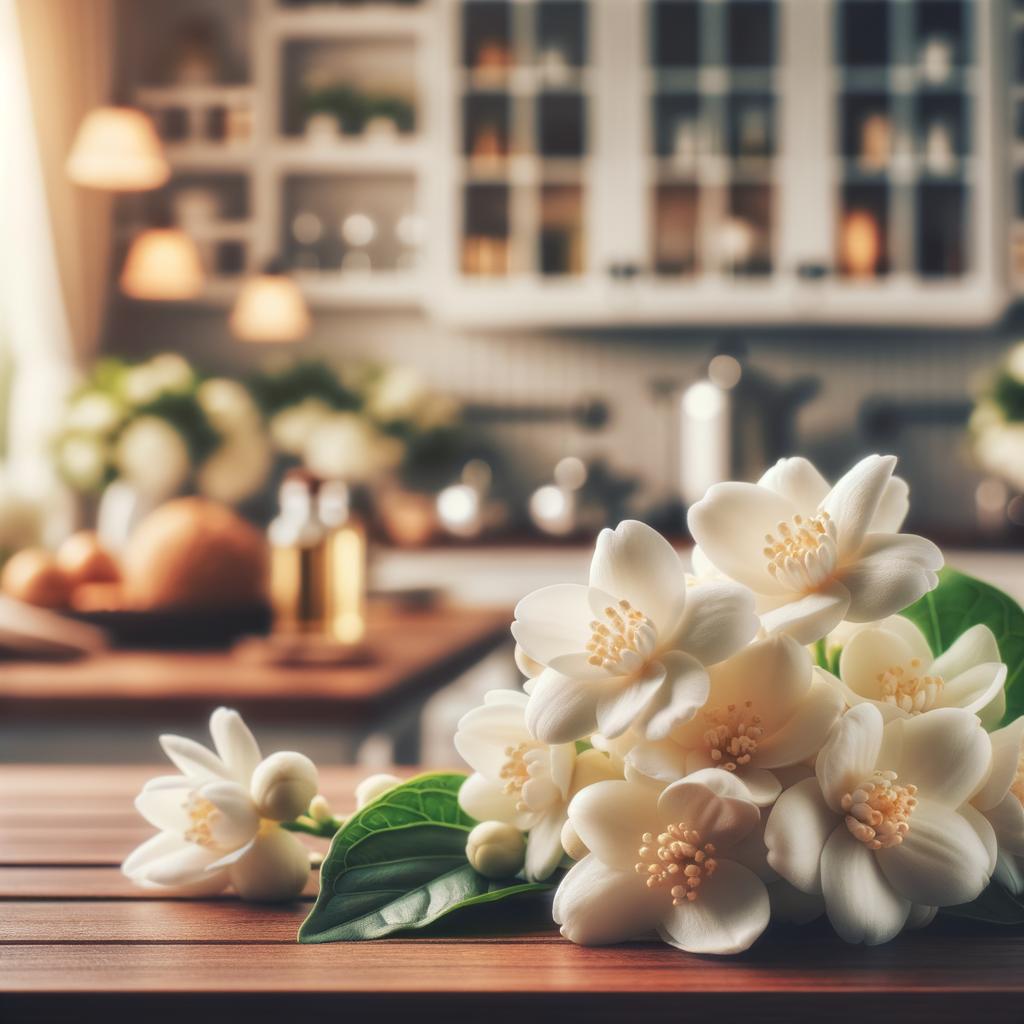Jasmine Flowers

Description
Jasmine flowers, or Jasminum officinale, are delicate and enchanting blossoms that have long captured the hearts of many. Their appearance is a sight to behold; petite, white, star-shaped petals that gently unfold to reveal a radiant yellow core. The texture of these blossoms is soft and velvety, a tactile delight. The flavor profile of jasmine is a unique combination of sweet and subtly floral notes, with a hint of earthiness that sets it apart from other edible flowers. Its distinct aroma, a heady, intoxicating scent, is one of its most defining characteristics, making it a favorite in the culinary world and beyond.
Primary Uses
In the realm of culinary arts, jasmine flowers are used to add a fragrant twist to a variety of dishes and beverages. They are often infused into teas, lending their sweet, floral notes to the brew. In Thai cuisine, jasmine flowers are used to flavor Jasmine rice, a staple in many dishes. They also make a charming garnish for desserts and salads. Beyond the kitchen, jasmine is also revered for its medicinal properties. Traditional medicine systems use it to soothe the nerves, aid in digestion, and promote sleep. Its captivating scent has also made it a cornerstone in the perfume industry.
History
The history of jasmine flowers is as enchanting as its scent. Originating from Persia (modern-day Iran), it spread across the world, weaving its way into the stories and traditions of different cultures. In the language of flowers, jasmine symbolizes love, beauty, and sensuality, and is often used in wedding ceremonies in some cultures. Over time, its use in culinary and medicinal applications has grown, making it a beloved ingredient in many parts of the world. There is a romantic tale in China about a poor, but kind-hearted woman who saved a snake, which turned out to be a fairy in disguise. As a token of gratitude, the fairy transformed the woman's jasmine plant into a tea plant, which brought her wealth and prosperity.
Nutritional Information
While the primary allure of jasmine flowers is their aroma and flavor, they also offer a range of health benefits. They are a good source of antioxidants, which help protect the body against oxidative stress. They also contain anti-inflammatory and antimicrobial properties, which can support overall health. When compared to other edible flowers, jasmine stands out for its calming properties, making it a popular choice for herbal teas aimed at relaxation. As always, moderation is key to enjoying these delightful blossoms. Their unique combination of history, flavor, and health benefits truly make jasmine flowers a gem in the culinary world.

